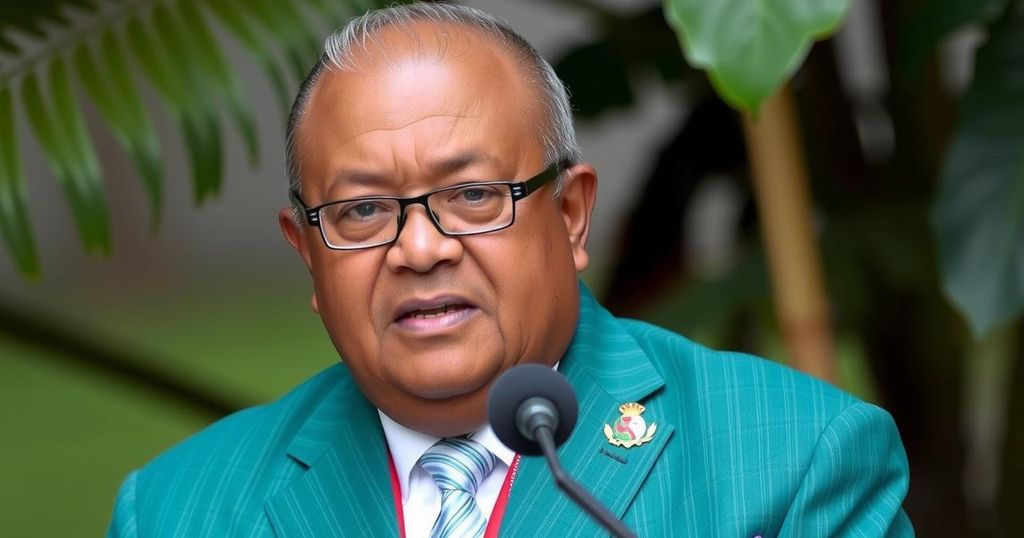Papua New Guinea’s PM Reaffirms Commitment to UN Climate Talks
Papua New Guinea’s Prime Minister James Marape announced the country’s return to UN climate talks, citing the need to prioritize forest conservation. Following a boycott of this year’s summit due to perceived disrespect towards forest stakeholders, Marape voiced intentions to push for accountability from high carbon-emitting nations during COP30 in Brazil and expressed support for Australia’s COP31 bid, emphasizing the importance of resource management in climate discussions.
Papua New Guinea’s Prime Minister, James Marape, announced on Tuesday that his nation intends to resume participation in United Nations climate summits following its absence from this year’s talks, which were criticized for their ineffectiveness. The Prime Minister emphasized the necessity of prioritizing forest conservation in climate discussions, asserting that global dialogues on climate change are futile unless they emphasize the significance of resource management and forestry, which he described as vital for absorbing carbon emissions. Marape stated that Papua New Guinea would actively participate in the upcoming COP30 summit in Brazil next year, advocating for financial accountability from nations with substantial carbon footprints for their forest conservation efforts. Furthermore, he expressed support for Australia’s proposal to co-host COP31 in 2026, contingent upon the importance of forest issues being central to the agenda. The Prime Minister’s remarks come against the backdrop of Papua New Guinea’s significant rainforest, acknowledged as one of the planet’s most critical carbon sinks, and highlight the pressing vulnerabilities faced by the Pacific nation amid the realities of climate change.
Papua New Guinea’s past boycott of the UN climate conference in Azerbaijan was attributed to a lack of respect afforded to forest business owners during the proceedings. The nation, grappling with poverty and geographical challenges, actively participates in a significant International Court of Justice case seeking to hold polluters accountable for failing to meet climate obligations. The Prime Minister’s commitment to reengagement with global climate discussions indicates a renewed dedication to address the dire realities of climate change risks that threaten the future of his country and the broader Pacific region.
The article focuses on the commitment made by Prime Minister James Marape of Papua New Guinea to return to UN climate discussions following a boycott of the recent climate summit. This decision highlights the country’s urgent need for recognition of forest conservation in global climate policies, given its vulnerability to climate change effects. The rainforest in Papua New Guinea is considered one of the largest on Earth, which plays a crucial role in carbon absorption. The Prime Minister’s emphasis on the integral role of forestry indicates a broader agenda pushing for more impactful climate actions that prioritize the preservation of natural resources.
In conclusion, Prime Minister James Marape’s declaration to re-engage with UN climate negotiations underlines Papua New Guinea’s emphasis on forest conservation as a critical focus in the fight against climate change. His administration’s previous boycott illustrates the frustrations experienced by nations that feel marginalized in international discussions. The return to the upcoming climate summits represents an opportunity for Papua New Guinea to advocate for environmentally responsible policies that balance development with ecological sustainability.
Original Source: www.fox28spokane.com




Post Comment